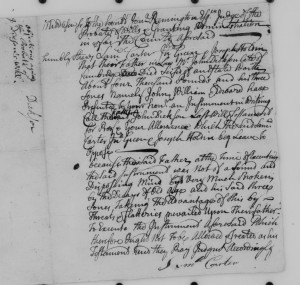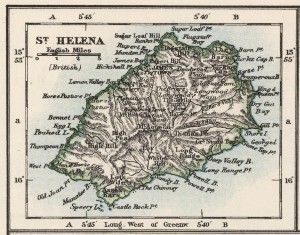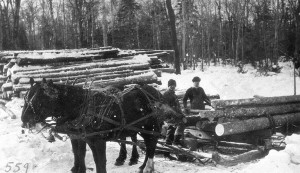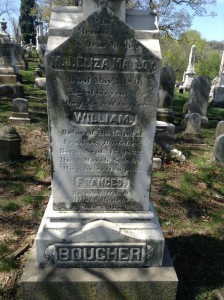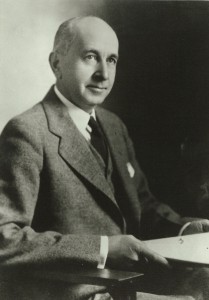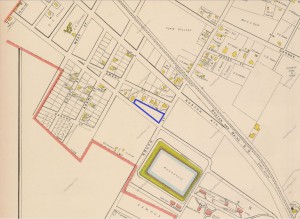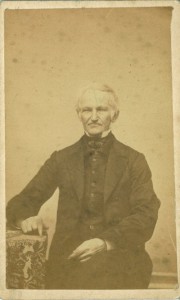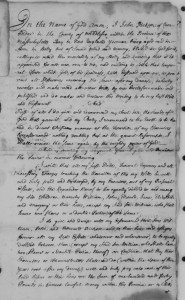[Editor’s Note: Alicia’s series began here and continues here.]
It is not often that a will is contested, but in the case of John Dickson, we have a nice, brief example.
John died on 22 March 1736/37, and by 4 April 1737 a formal petition had been submitted to the judge of the probate court by Samuel Carter, John Green, and Joseph Holden claiming that “their Father in Law Mr John Dickson late of Cambridge Decd Died Seised of an Estate Worth About four Thousand Pounds and his three sones namely John, William & Edward have Presented to your honr an Instrument in Writing Call[ed] their Father John Dickson[‘s] Last Will & Testament for Proof.… Continue reading Probate records: Part Three
